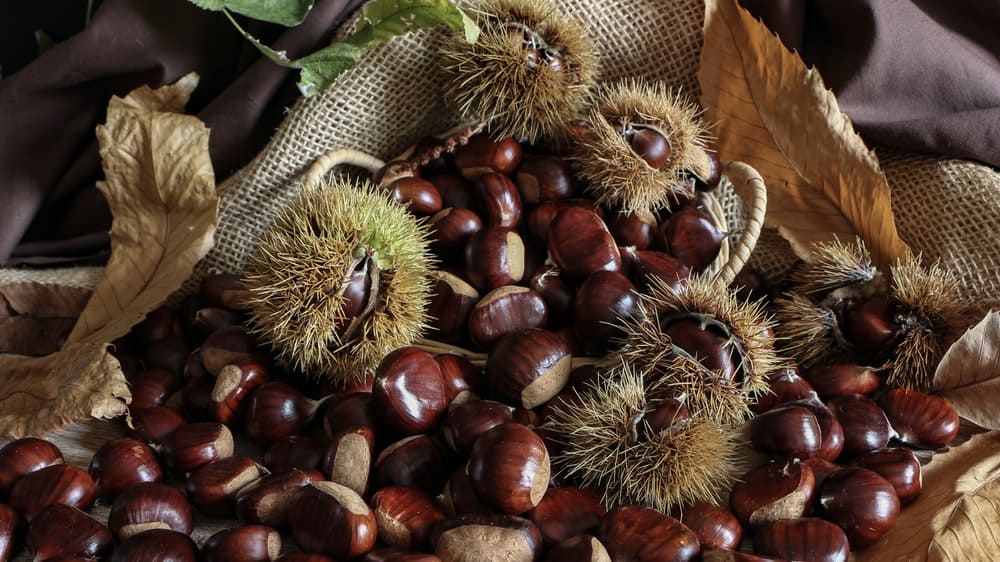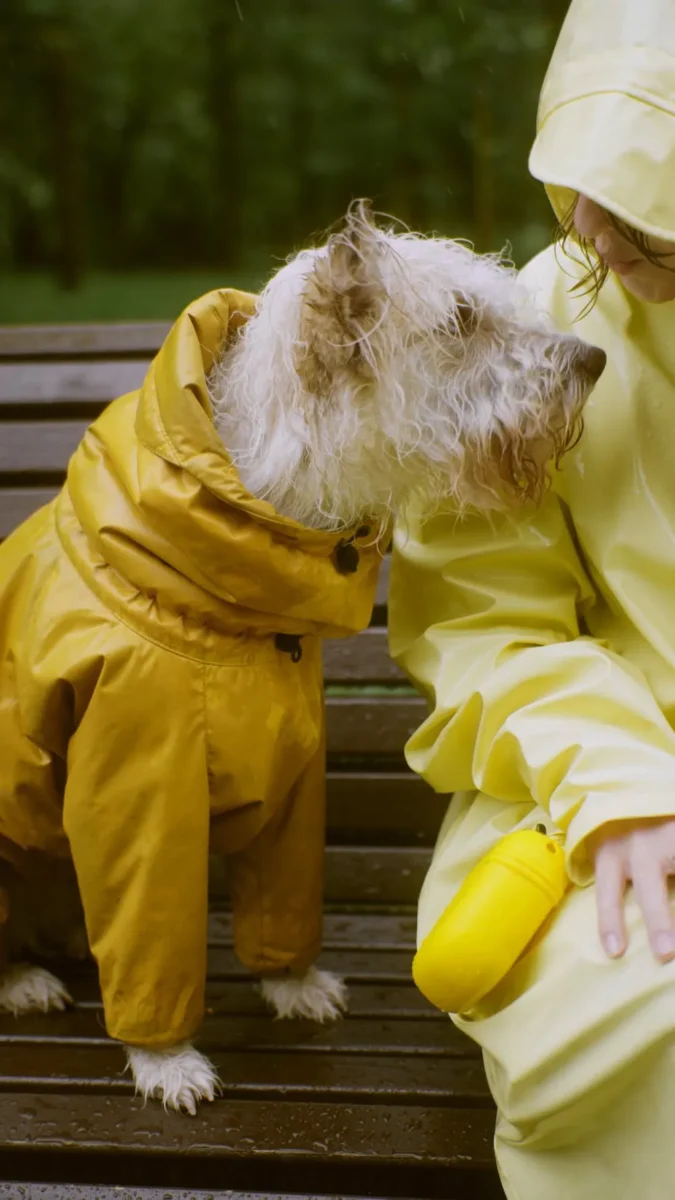Water chestnuts are aquatic plants that you will find growing in ponds, marshes, and lakes. The plant has long, slender leaves and a small, round fruit with a large seed. Water chestnuts are native to Asia, and they have been cultivated there for centuries. The fruits are often eaten raw or cooked, and they are popular Asian cuisine ingredients. Water chestnuts are also sometimes used as a natural treatment for various ailments.
So, can dogs eat water chestnuts? The answer is yes, but it is important to exercise caution. Water chestnuts contain a high amount of iron, which can be toxic to dogs in large quantities. They also contain a substance called oxalate, which can cause kidney stones. On the bright side, they also contain a variety of nutrients that are good for your dog’s health.
For these reasons, it is best to only give water chestnuts to your dog in small amounts as part of a well-balanced diet. You should also consult with your veterinarian before giving water chestnuts to your dog to make sure that they will not interact negatively with any medications your dog is taking.
Pros and Cons of Water Chestnuts for Dogs
They Contain Healthy Nutrients
One of the nutrients found in water chestnuts is potassium. Potassium is an essential mineral for dogs and helps to keep their bodies healthy in a number of ways. It supports proper muscle function, helps to regulate fluid levels, and maintains normal heart function. Potassium also plays a role in nerve function and energy production.
Because of all these important functions, potassium deficiency can lead to several health problems in dogs, including weakness, lethargy, and heart arrhythmias. Fortunately, potassium can be easily obtained through a healthy diet.
Foods that are high in potassium include water chestnuts, sweet potatoes, spinach, beans, and bananas. So if you’re looking to give your furry friend a little boost of potassium, make sure to add these foods to their diet.
They also contain Vitamin B6. Vitamin B6 is an important vitamin for dogs, and plays a role in many different bodily processes. For example, vitamin B6 is needed for the proper development of red blood cells, and helps to maintain a healthy immune system. Vitamin B6 is also involved in energy metabolism, and helps the body to convert food into usable energy. Additionally, vitamin B6 plays a role in nerve function, and helps to keep the nervous system functioning properly. Because of all these important functions, it is essential that dogs get enough vitamin B6 in their diet. Good sources of vitamin B6 include meat, poultry, fish, and whole grains.
Another important nutrient in water chestnuts is vitamin C. Vitamin C is an essential vitamin for dogs, and it plays an important role in their overall health. It helps to boost the immune system, and it also aids in the absorption of iron. Vitamin C can be found in many different foods, including citrus fruits, tomatoes, and green vegetables.
Most dogs get enough vitamin C from their diet, but some may need supplements if they are not eating a well-balanced diet. Dogs that are under stress or that have certain medical conditions may also benefit from vitamin C supplements. Vitamin C is safe for most dogs, but it is always best to speak with a veterinarian before giving supplements to your pet.
Lastly, they are rich in Omega-3 fatty acids. Omega-3 fatty acids are a type of fat that is beneficial for dogs. Omega-3s can help to improve the health of a dog’s skin and coat, and they can also reduce inflammation. Omega-3s are found in fish oil, and they can also be synthesized by the dog’s body from omega-6 fatty acids.
For a dog to benefit from omega-3s, they need to consume omega-6s as well. The ratio of omega-6s to omega-3s should be about 5:1. Most commercial dog foods contain omega-6 fatty acids, but they often do not contain enough omega-3s. As a result, many dogs need to supplement their diet with omega-3 fatty acids.
They Contain Iron and Oxalate
Iron is an essential mineral for humans, but it can be toxic to dogs. The symptoms of iron poisoning in dogs include vomiting, diarrhea, and lethargy. In severe cases, iron poisoning can lead to liver damage and death. Dogs typically get iron poisoning by eating iron-containing objects, such as nails or coins.
They can also be exposed to iron if they drink water from a rusty pipe or eat food that contains high levels of iron. If you think your dog has been exposed to iron, contact your veterinarian immediately. Treatment for iron poisoning typically involves giving the dog chelation therapy to bind the iron and remove it from the body. With prompt treatment, most dogs recover from iron poisoning without any lasting effects.
Oxalate is a molecule that is found in many foods, including fruits, vegetables, nuts, and grains. While oxalate is not harmful to humans, it can be toxic to dogs. When oxalate is ingested by a dog, it can bind with calcium in the digestive tract and form oxalate crystals.

« The Ultimate Guide to Potty Training Your Golden Retriever Puppy
Do Golden Retrievers Bite? »
These crystals can then block the urinary tract and cause kidney damage. In severe cases, oxalate poisoning can be fatal. For this reason, it is important to avoid feeding your dog food that contains high levels of oxalate. Some of the most common high-oxalate foods include spinach, rhubarb, and wheat germ.
Can Dogs Eat Canned Water Chestnuts?
The answer is no. Canned water chestnuts contain sodium and preservatives. Sodium and preservatives are bad for dogs because they can cause health problems. Sodium is an electrolyte that helps to regulate blood pressure and fluid levels in the body. Too much sodium can lead to dehydration, electrolyte imbalance, and high blood pressure.
Preservatives are chemicals that are added to food to extend its shelf life. Some preservatives, such as sodium benzoate, can be toxic to dogs and can cause health problems. Sodium and preservatives are bad for dogs because they can cause health problems. Too much sodium can lead to dehydration, electrolyte imbalance, and high blood pressure. Preservatives can also be toxic to dogs and can cause health problems.
Final Word
If your dog must eat water chestnuts, make sure they are fresh rather than canned. Moreover, even with fresh water chestnuts, practicing moderation is key. Furthermore, if your dog doesn’t respond well to water chestnuts, consult the vet right away, and discontinue feeding it water chestnuts right away. While there are some healthy nutrients in there, too much of it can cause problems, so take heed.







